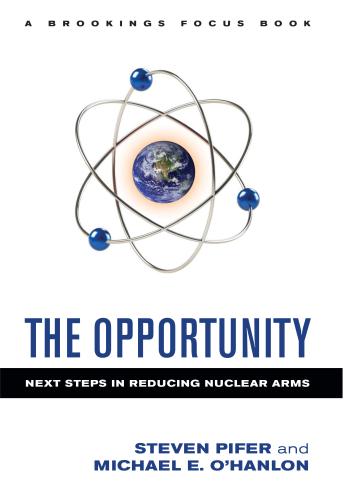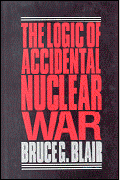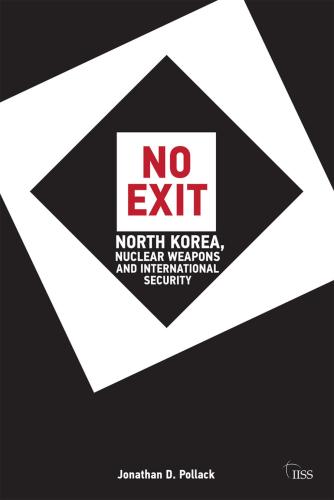Brookings recently lost a valued former colleague and friend to many, Janne Nolan, chair of the Nuclear Security Working Group. Janne was associated with the Brookings Institution as a fellow and senior fellow for 13 years, from 1986 to 1999. She also served in the Arms Control and Disarmament Agency where she negotiated arms transfer limitations with the Soviet Union, advised the Senate Armed Services Committee under Senator Gary Hart, and served on multiple governmental advisory boards. She authored seven books, including the landmark “Guardians of the Arsenal: The Politics of Nuclear Strategy” (1989), and edited more. Her last book was “Tyranny of Consensus: Discourse and Dissent in National Security Policy” (2013).
 Tamara Cofman Wittes, Senior Fellow in the Center for Middle East Policy: In the mid-1990s, I enrolled in Janne Nolan’s course on weapons of mass destruction at Georgetown. I knew that an aspiring security policy wonk couldn’t avoid the subject (I remembered how Geraldine Ferraro had been peppered with questions about throw-weights during her vice-presidential run in 1984). But I was, truth be told, pretty intimidated. Imagine how refreshing it was to see tall, elegant Dr. Nolan preside over the course with effortless authority. She took no guff from the missile jocks in the room. In a national-security world dominated by no-nonsense navy suits, Janne’s bright colors and flowing scarves stood out. She was the toughest professor I had at Georgetown, and yet one of the most encouraging. Although I eked out a B- on my final paper, she gave me extensive comments and suggested I revise it for publication. That’s how she was throughout my career: expecting my best, and unfailingly supportive.
Tamara Cofman Wittes, Senior Fellow in the Center for Middle East Policy: In the mid-1990s, I enrolled in Janne Nolan’s course on weapons of mass destruction at Georgetown. I knew that an aspiring security policy wonk couldn’t avoid the subject (I remembered how Geraldine Ferraro had been peppered with questions about throw-weights during her vice-presidential run in 1984). But I was, truth be told, pretty intimidated. Imagine how refreshing it was to see tall, elegant Dr. Nolan preside over the course with effortless authority. She took no guff from the missile jocks in the room. In a national-security world dominated by no-nonsense navy suits, Janne’s bright colors and flowing scarves stood out. She was the toughest professor I had at Georgetown, and yet one of the most encouraging. Although I eked out a B- on my final paper, she gave me extensive comments and suggested I revise it for publication. That’s how she was throughout my career: expecting my best, and unfailingly supportive.
Janne was an unfailing booster for women in our male-dominated field. A doctoral student at George Washington University, Dani Gilbert, noted that “she was my favorite person to see in ISCS [The Institute for Security and Conflict Studies]—always with the perfect, whispered, dry remark, or warm encouragement for the young women to speak up and sit at the table.” Janne also lent her time to Women in International Security (WIIS), where she mentored female graduate students in international relations during WIIS’s summer institute (I am a beneficiary of that program, along with many other women in the field).
As a colleague, Janne was fearless and funny, always ready to find humor in the posturing that is an inevitable feature when scholars of global power rub shoulders with the denizens of Washington power politics. Brookings Senior Fellow Carol Graham recalls that she often told a story of entering some muckety-muck’s office in the Pentagon, behind a gentleman colleague. When the muckety-muck’s assistant called her companion “Mr. Brown,” he said: “It is Dr. Brown, please.” So Janne followed him and wryly said: “And I am Nurse Nolan.” She didn’t posture; she didn’t need to. She knew her subjects cold.
Janne was a role model for me as a young woman in national security policy, as she was for so many others. I’m glad I told her so. She’s gone too soon.
 Michael O’Hanlon, Senior Fellow and Director of Research for Brookings Foreign Policy: I arrived at Brookings in 1994, when Janne was already a major established voice in the field and at the Institution. She quickly became sort of my big sister as I tried to establish my own voice and get my own feet on the ground. Around 1995, after my first Brookings book was published, the Air Force Chief of Staff invited me over to the Pentagon for a lunch to discuss it, and said I could bring someone with me if I wished. Immediately, I asked Janne to go—and she effectively held my hand as I walked into a room with two 4-stars, three 3-stars, and at least four 2-star general officers. They were great, as it turned out, and General Fogleman was gracious to have us there—but I was only really able to enjoy the occasion in the face of such overwhelming airpower in crisp blue suits because I knew Janne would have my back if the going got tough (as well as plenty of her own ideas to offer to the conversation, of course).
Michael O’Hanlon, Senior Fellow and Director of Research for Brookings Foreign Policy: I arrived at Brookings in 1994, when Janne was already a major established voice in the field and at the Institution. She quickly became sort of my big sister as I tried to establish my own voice and get my own feet on the ground. Around 1995, after my first Brookings book was published, the Air Force Chief of Staff invited me over to the Pentagon for a lunch to discuss it, and said I could bring someone with me if I wished. Immediately, I asked Janne to go—and she effectively held my hand as I walked into a room with two 4-stars, three 3-stars, and at least four 2-star general officers. They were great, as it turned out, and General Fogleman was gracious to have us there—but I was only really able to enjoy the occasion in the face of such overwhelming airpower in crisp blue suits because I knew Janne would have my back if the going got tough (as well as plenty of her own ideas to offer to the conversation, of course).
Indeed, in her writings on nuclear strategy and force planning, Janne had taken on plenty of Air Force interests before, not to mention many other Pentagon rice bowls and a number of (almost all-male) American nuclear strategists. She was in many ways a dissident about issues that she studied very diligently and took extremely seriously. I join Tamara, our other Brookings colleague Caitlin Talmadge, and many others in singing the praises of her book, “Guardians of the Arsenal.” But in addition to being tough, Janne was also fair, and politically and personally smart, and engaging. She could take on your ideas without making you feel that she was attacking you, and I believe that is part of why she was so effective in Washington. She had a number of iconoclastic and very critical ideas about American nuclear policy and the U.S. national security establishment. But she was able to market them effectively in the nation’s capital, where such ideas do not always get a good reception. That was because, as Tamara writes, she knew her subject cold. It was also because of her personality. Far from a shrinking violet. But always judicious, and usually with a wisp of a smile, a slightly ironic grin, or just a kind hello, depending on the situation.
She was also self-deprecating, about scholars at a place like Brookings in general, and herself in particular. And funny. I always remember her teasing me by saying: “O’Hanlon, it’s half past October, don’t you think it’s time to get going on your book?” I think that half-serious, half-playful commentary on the nature of think-tank life was one of her favorite lines, but she had a lot of them.
Janne was a key part of the Brookings team of the late Cold War era that made me dream about somehow getting lucky enough to wind up here myself someday. Under the guidance of John Steinbruner, and with Bruce Blair and Josh Epstein and Paul Stares and Dick Betts and Marty Binkin and Bill Kaufmann and others, they did more than any other institution at any other time I can remember to challenge and shake up American nuclear strategy, budgeting, and thinking (along with making many other contributions in other areas of defense and national security policy). The world is safer because of them, and her.
In more recent years, as Tamara notes above, Janne continued the writing but devoted huge amounts of time to students. The tributes that I continue to hear in these sad days after her death speak volumes about the impact she had on so many of them.
I wish I’d said these things to Janne when she was still around, and really thought she would be around another 20 years. It is tragic that she won’t be. But I am so glad and fortunate to have known her.
The Brookings Institution is committed to quality, independence, and impact.
We are supported by a diverse array of funders. In line with our values and policies, each Brookings publication represents the sole views of its author(s).











Commentary
Brookings experts reflect on the life and legacy of Janne Nolan
June 28, 2019